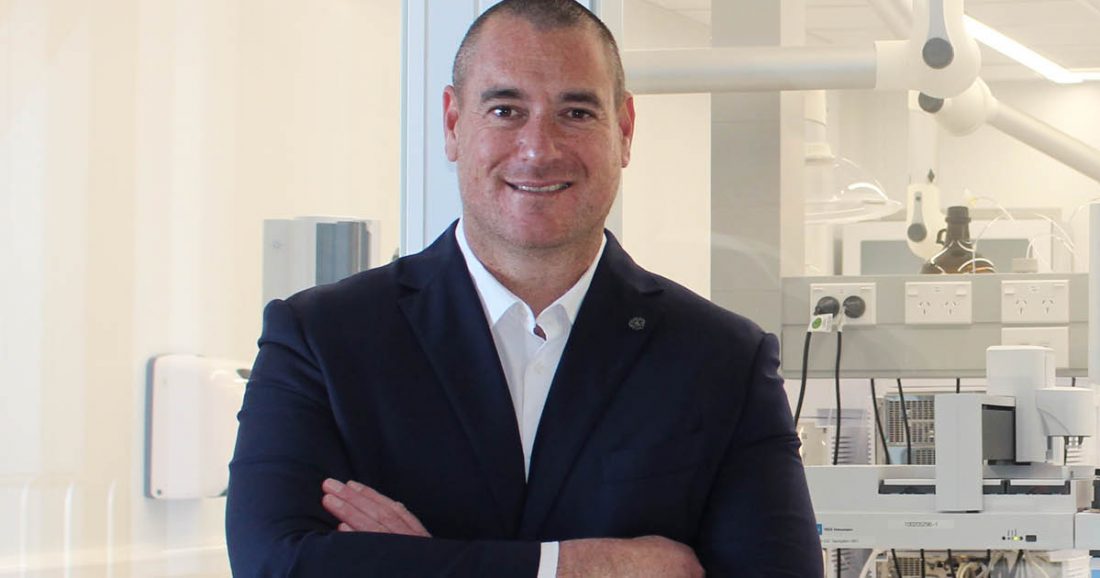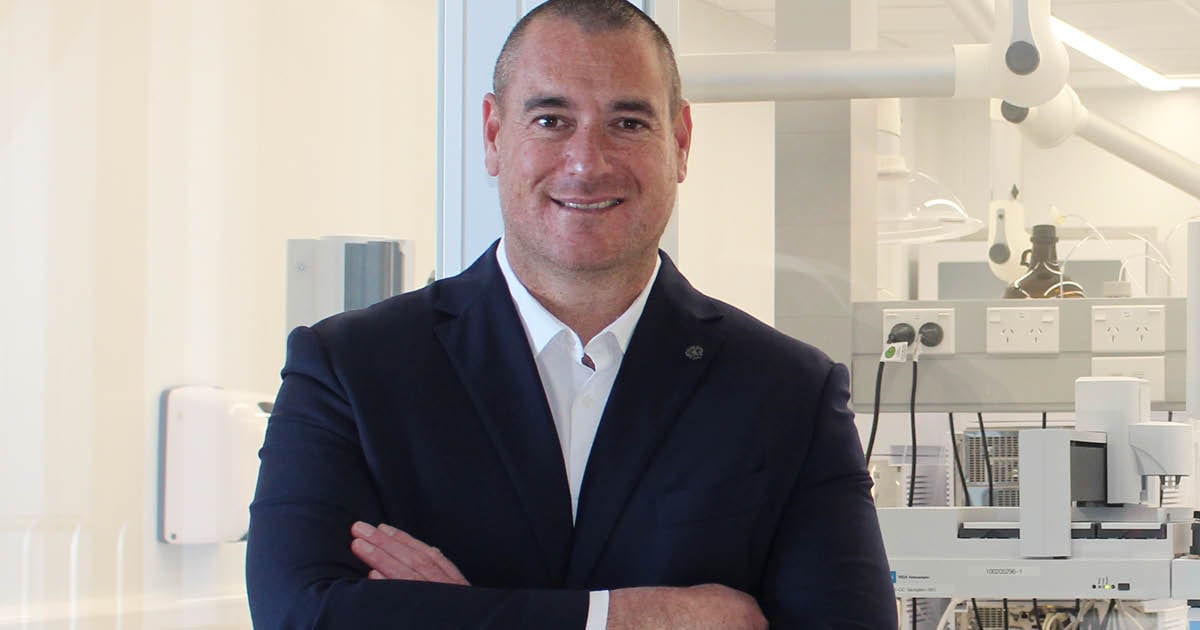Nera Gordon’s first job in the dairy industry 19 years ago was at a factory in the small town of Waitoa, a 90-minute drive south of Auckland on New Zealand’s North Island. There, he spent his days heaving 25-kilogram bags of nutritional powder onto pallets for global export.
It didn’t take him long to be made a team lead at milk export giant Fonterra, eventually becoming a senior manager before joining South Canterbury-based Oceania Dairy in 2017, where he’s been General Manager for just over a year.
In close to two decades, he’s held a dozen positions in the industry. Few of his compatriots can boast more knowledge or expertise.
“I tell my teams that I’ve got all these years of experience and I’m trying to teach them everything I know within a year so they can be the best they can be,” he says with a smile.
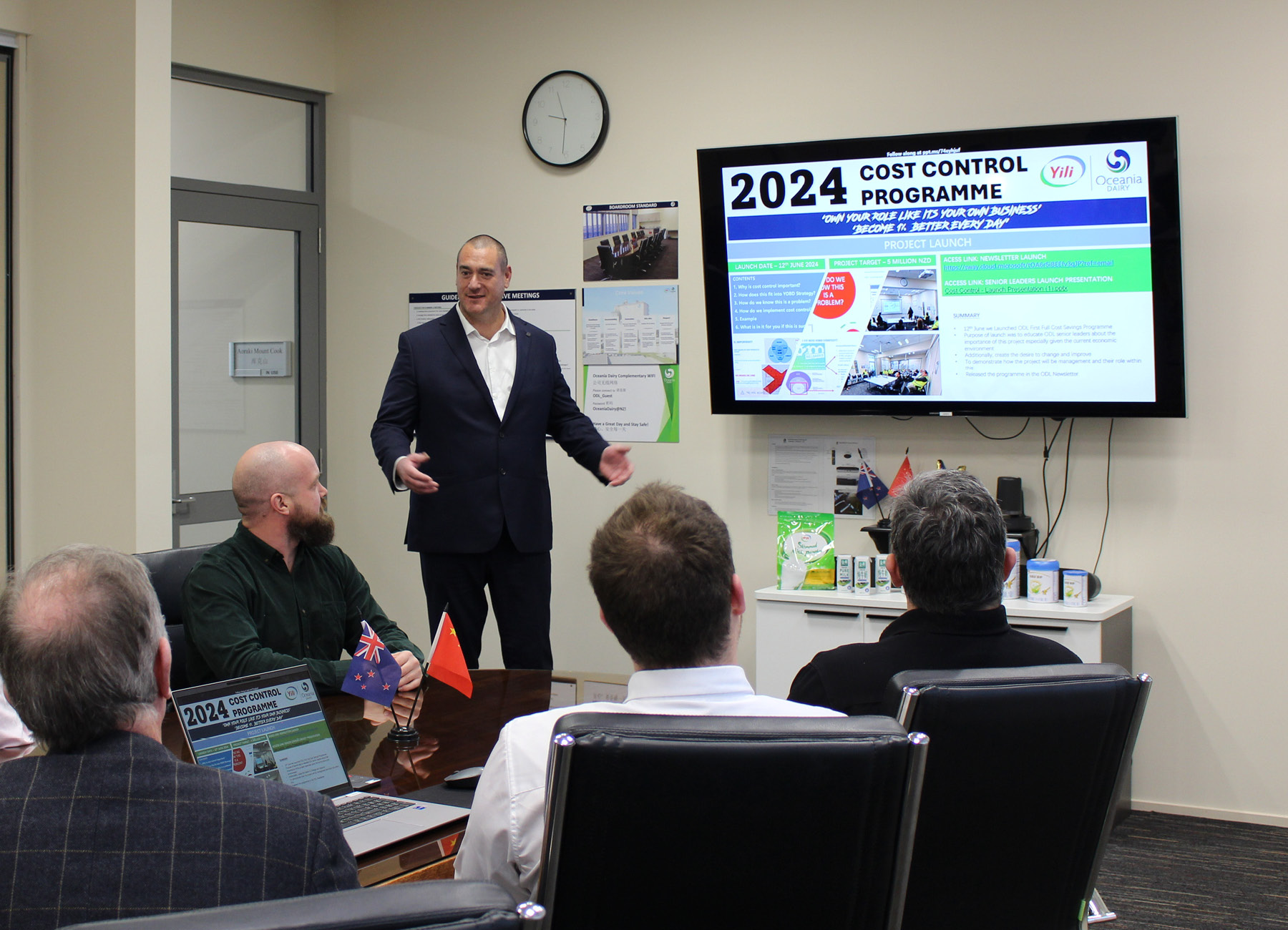
“I tell my teams that I’ve got all these years of experience and I’m trying to teach them everything I know within a year so they can be the best they can be.”
Oceania Dairy produces up to 47,000 metric tons of milk powder a year at its advanced manufacturing plant in Glenavy. Its giant milk powder dryer can convert 65,000 liters of milk an hour into 10 metric tons of powder, generating annual revenue of more than NZ$376 million [US$224 million].
Its parent company, Yili, is among the top five dairy companies worldwide and has been the market leader in Asia for a decade.
New Zealand’s milk powder exports are second only to the United States and will be worth US$6 billion this year, with nearly a third of its product sent to China. The industry has doubled in size in the last 16 years to 1.8 billion kilograms per year, and accounts for 14 percent of all the country’s exports.
Cream of the crop
Under Gordon’s leadership, Oceania has grown its market share more than most in a highly competitive sector.
“We’ve expanded our operation a great deal and now have multiple production and packing plants in place and a headcount sitting just over 400,” he says. “In the last three years, we’ve nurtured a culture of innovation that has helped triple the number of products we make.”
The company’s state-of-the-art Tetra Pak spray dryer produces a range of formulated products including skimmed and whole milk, infant and adult formula base powders, with some being canned on site. The company also has a Tetra UHT plant with three packing lines.
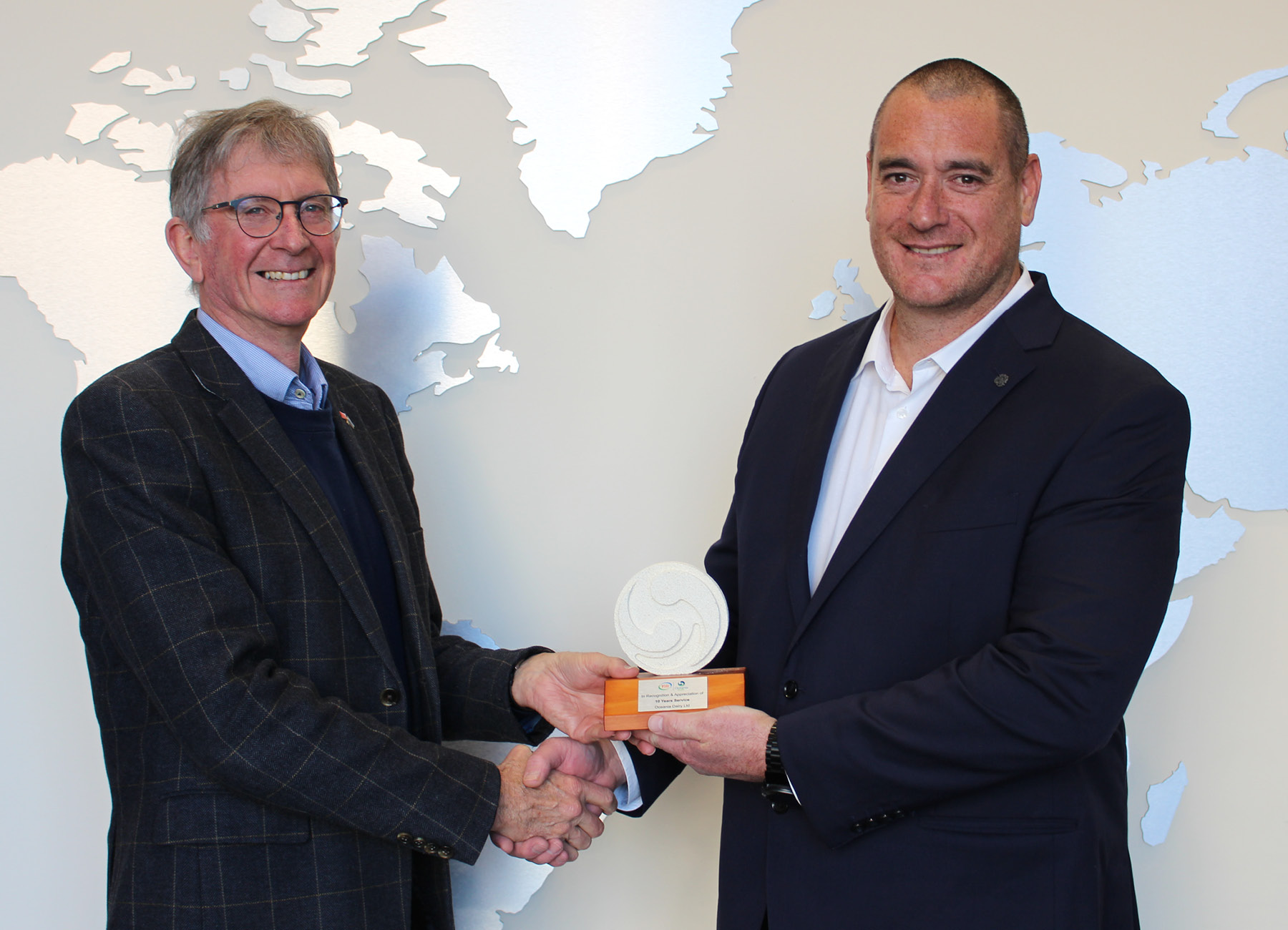
Shane Lodge (left), GM Milk Supply & Environment and Oceania Dairy’s longest serving employee, celebrating his 10 years of service
One thing that hasn’t changed over the years is the size of the bags, which are still 25 kilograms, though robotics has reduced the need for junior staff to lug them onto pallets.
Oceania also has a canning facility and has recently developed an improved resealable one kilogram pouch, which was made possible through a trusted partnership that stretches right back to the beginning of Gordon’s career.
“I met an engineer called John Miles 18 odd years ago,” he recalls. “He founded a wonderful equipment and conveyancing company called Powder Projects and we’ve continued to find ways to work together ever since. He’s never let me down so when it came to scoping a large-scale improvement to our onsite pouch production, he was top of my list.”
It proved to be an inspired choice as the new system, developed with the additional support of Bossar, Industrial Controls and RML Machinery, has been a huge success, boosting yields and daily throughput, and maximizing line efficiency.
“I’d say we now have one of the very best production processes when benchmarked with some of the other pouch lines available,” Gordon says.
Future-focused
But Gordon isn’t about to rest on his laurels. He’s just launched a company-wide cost-saving initiative, which will significantly improve the financial performance, as well as staff training programs to develop key talent.
“The industry is continuously changing so I ensure our company strategies and management systems evolve with it,” he says. “To that end, I’ve created some important new roles that will allow us to be more responsive to customers and develop new and improved products.”
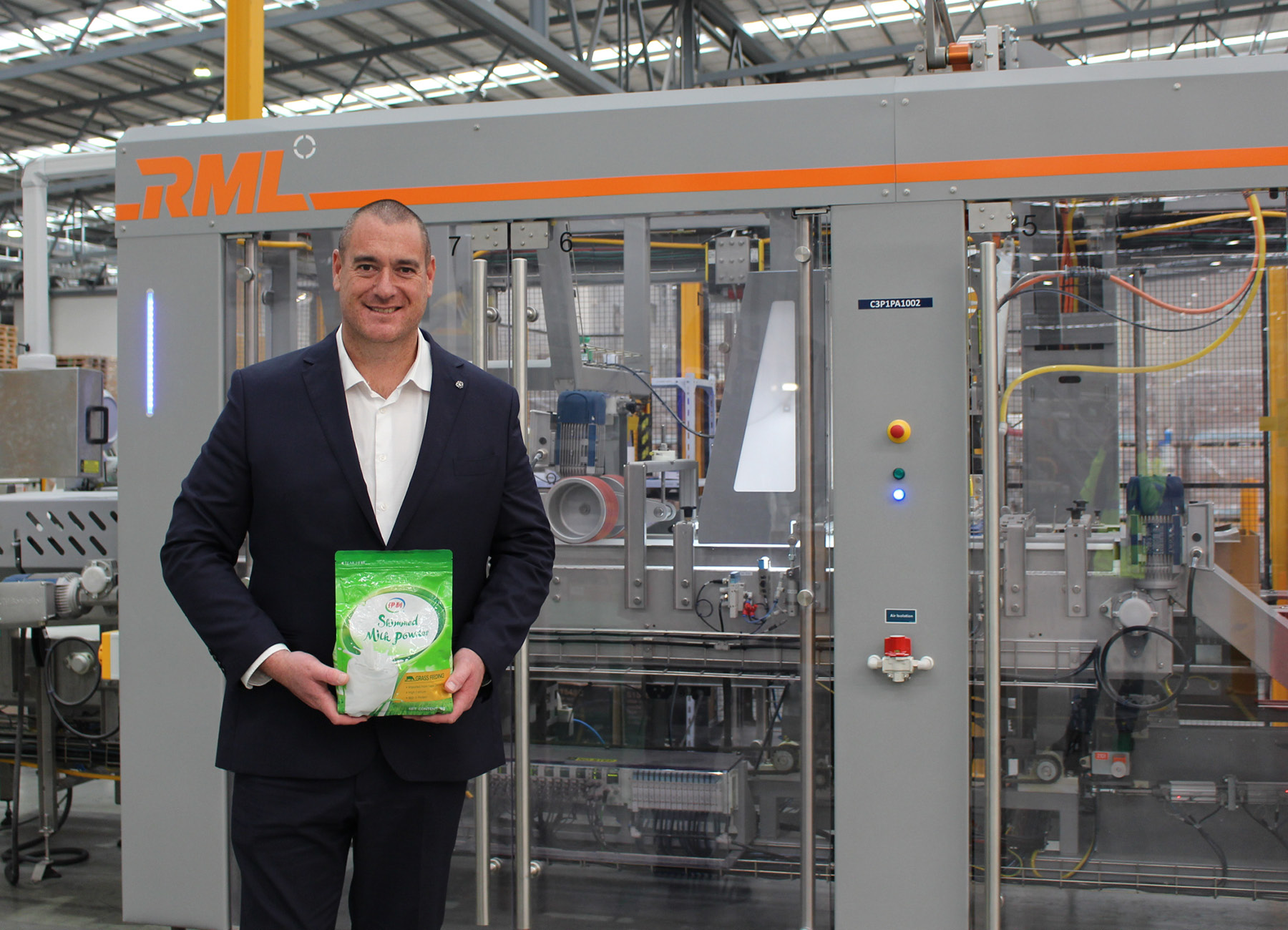
“I’d say we now have one of the very best production processes when benchmarked with some of the other pouch lines available.”
But it isn’t just the customers and consumers who are being looked after. Oceania has become a valued member of the local community, contributing to a number of charities and even offering its staff free transportation to and from the factory, to make their days easier.
“They effectively get an extra 30 or 40 minutes at the start and end of the working day. It’s also great from a health and safety perspective, as those doing shift work don’t have to concentrate on driving at dawn and dusk,” Gordon says.
“I’ll never forget where I came from and I want to help as many people as possible have the opportunity to rise up through the ranks. A lot of our managers started as I did, as junior operators, and I want lots more to be able to do the same.”

